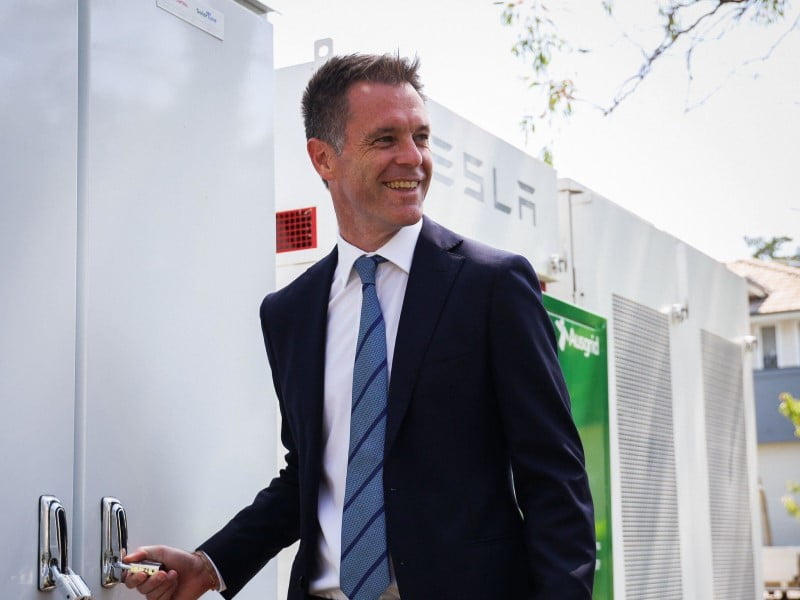NSW Labor will cut government spending on external contractors by 25 per cent and use the $1.6 billion in savings to improve essential services like education and health if it is elected later this month.
Opposition leader Chris Minns and shadow treasurer Daniel Mookhey made the commitment on Monday in a bid to address the state’s growing labour hire spend, which has “spiralled out of control” over the past 12 years.
“NSW Labor recognises that we will have to work with the private sector in government, but we must get the budget back under control while reinvesting the savings to repair our schools and hospitals,” Mr Minns said.

According to an audit of NSW’s 25 biggest government agencies in December, spending on contractors doubled during the pandemic, climbing from $600 million in 2019-20 to $1.2 billion in 2021-22.
But independent budget office analysis commissioned by NSW Labor shows total government spending on labour hire will increase by a further $600 million this financial year to reach $1.8 billion.
Contractor spending is then expected to continue to grow over the next two years, reaching $2 billion a year by 2025 – around four times what was spent in 2011-12, when Labor was last in government.
NSW Labor said spending on contingent labour has grown by an average of 19.4 per cent every year since 2016, which shows that the “Liberal National government has lost any sense of budget discipline”.
Mr Mookhey said outsourcing over the last 12 years had “led to a public service run by a shadow army of non-permanent workers” and that the challenges of a tight labour market would require “discipline and good judgement”.
“With a severe shortage of critical workers across NSW, Mr Perrottet is spending an enormous amount of taxpayer money filling ICT and administrative tasks with temporary workers,” the shadow treasurer said.
Mr Mookhey also accused the government of failing to comply with a recommendation of the Public Service Commission in 2017 that contingent labour should only be used when it is the most efficient and effective option available” and “informed by proper workforce planning”.
In reducing the spend by 25 per cent – or $1.6 billion – over the next four years, the Opposition plans to reinvest the savings in essential services, with schools and hospitals expected to see the most benefit.
Mr Minns also used his campaign launch speech on Sunday to vow to reduce wasteful spending on consultants, after an audit found government agencies had spent around $1 billion between 2017-18 and 2021-22.
“We’ll end that exorbitant waste; we’ll find savings to make sure our public services run better. The truth is its far to top heady, and the money must be directed where it’s needed – to those who deliver the services,” he said.
The audit found that the Big Four consulting houses – KPMG, Ernst & Young, PwC and Deloitte – accounted for more than a quarter of the $1 billion spend, highlighting the increasing concentration of external advice.
The agencies that were assessed have defended the use of consultants, blaming the pandemic and several natural disasters over the period, but have accepted recommendations for a more strategic and closely monitored approach.
Do you know more? Contact James Riley via Email.

